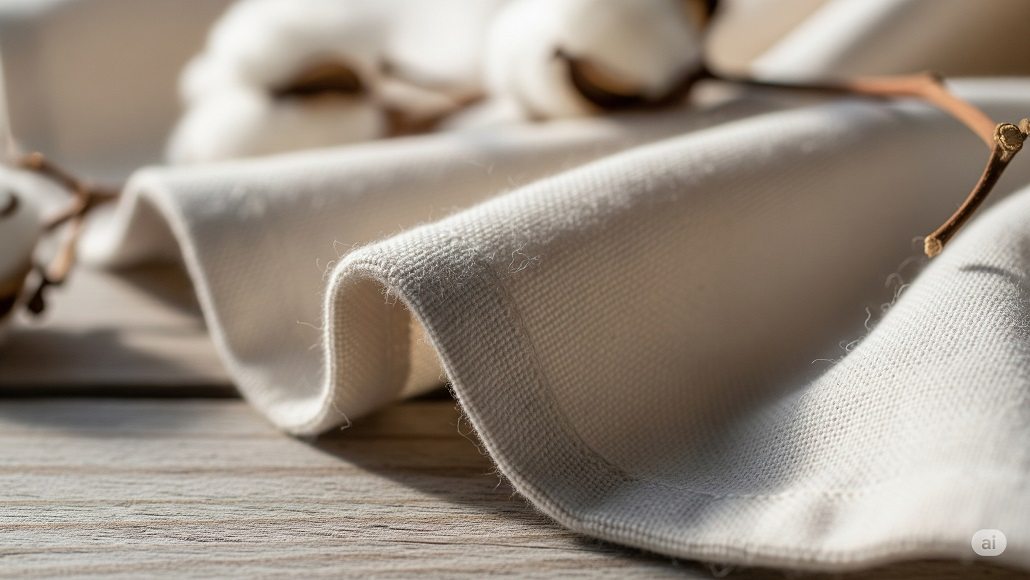Researchers at North Carolina State University have unveiled an innovative and sustainable technique for finishing cotton fabrics using cottonseed oil, presenting a healthier alternative to hazardous chemicals like formaldehyde and PFAS. This groundbreaking method aims to enhance the durability and smoothness of textiles while safeguarding both environmental and human health. Taylor Kanipe, a graduate student involved in the research, shared these findings at the ACS Fall 2025 meeting, marking a significant advancement in eco-friendly textile production.
The conventional process for transforming cotton into fabric requires extracting and spinning the cellulose fibers from the cotton boll, weaving them into fabric, and then treating the fabric with various chemicals to improve its characteristics, such as softness and wrinkle resistance. Traditionally, formaldehyde-based resins have been used to finish fabrics due to their cost-effectiveness and strong binding properties, forming chemical links with the cellulose fibers. However, at high concentrations, formaldehyde is classified as a carcinogen and can cause skin and respiratory irritation.
In response to the environmental concerns posed by these chemicals, Richard Venditti, a professor of forest biomaterials at NC State, led a team to create a greener alternative by modifying cottonseed oil. Utilizing prior research, Kanipe and Venditti discovered that they could chemically alter the cottonseed oil, introducing epoxy groups into the fatty acid chains. This epoxidized cottonseed oil (ECSO) then forms robust chemical bonds with the cellulose fibers, enhancing the fabric’s water resistance and resilience against wrinkling.
In addition to its role in fabric finishing, ECSO offers a practical application for the cottonseed oil produced alongside cotton fibers, making it a viable substitute for formaldehyde resins. The sustainable cotton fabric finishing method using ECSO not only retains effectiveness but also minimizes health risks associated with traditional chemicals. “Epoxidized vegetable oils have a range of applications,” Kanipe noted, emphasizing the safety and usability of this alternative.
Through infrared spectroscopy, researchers confirmed the successful bonding of ECSO molecules to the fabric. They also assessed the water repellency of the treated fabric, finding that ECSO-treated cotton exhibited a contact angle of 125 degrees, indicating superior water resistance compared to untreated fabric, which demonstrated no angle and absorbed water entirely.
Future investigations will focus on evaluating other performance metrics, such as tear strength and overall durability, with the aim of creating a water-based treatment process that eschews harmful substances. The goal is to establish a sustainable cotton fabric finishing method that effectively modifies cotton to be anti-wrinkle, anti-staining, and water-resistant using a water-based approach. “If we can achieve this, we’ll provide a sustainable solution for replacing harmful finishes,” Venditti asserted.
This research received support from Cotton Incorporated and the Agriculture and Food Research Initiative of the U.S. Department of Agriculture’s National Institute of Food and Agriculture.

































